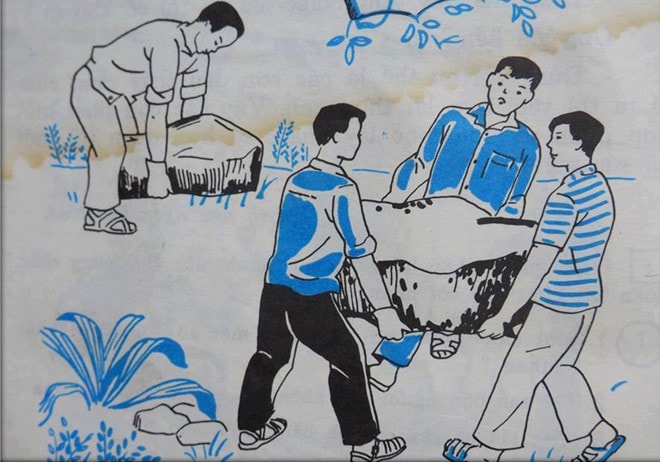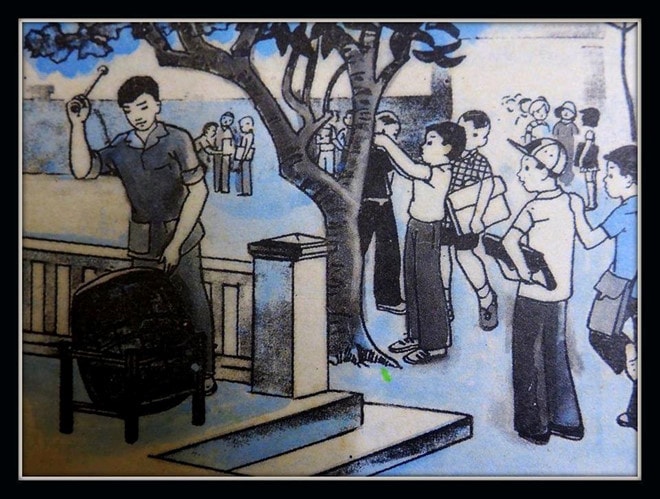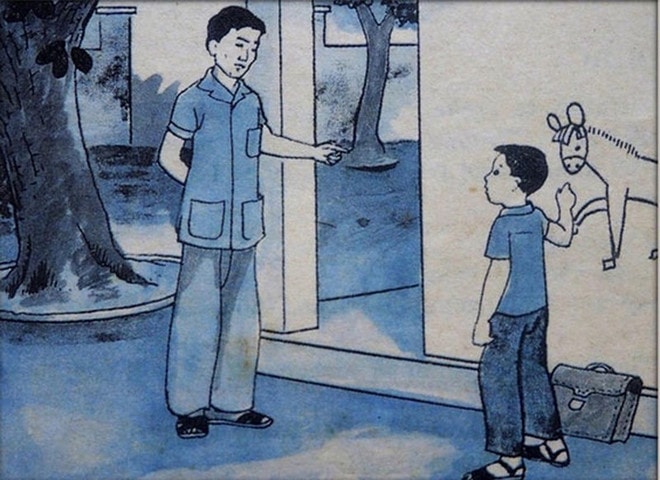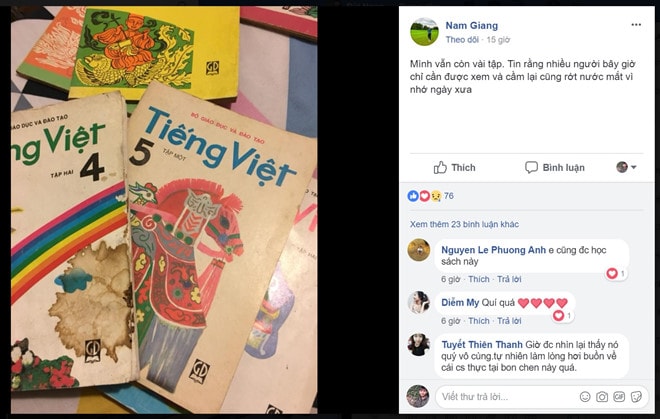Confessions of a generation of students using old textbooks
"Textbooks in the past contained messages of kindness, simple, truthful writing, rich in meaning and humanity. They were quick to learn and very familiar," Phi Hong shared.
On March 29, a forum with more than 1.5 million followers posted a photo series of old Vietnamese textbook pages.
Reminiscing the childhood of many generations of 8X and early 9X students, the post received 40,000 likes, more than 44,000 shares and thousands of comments.
|
| Illustration of the lesson "The Big Stone" by author Ho Chi Minh in the old Vietnamese textbook for grade 2, volume 2, Education Publishing House. |
Nearly 16 years have passed since the education sector switched to using new primary school textbooks. The old books have quietly left the minds of students, wandering in used bookstores or becoming scrap metal.
Suddenly one day, images of old textbooks appeared on the internet. The old, yellowed pages evoked memories of many generations of students.
My school drum
Summer break too
For three months straight
Empty lying thinking
Are you sad?
In the summer days
We are away
Only the sound of cicadas?
Recalling the time of poor school, Facebook account ownerMoc Trawrote: "My whole childhood remembers the days when I just looked forward to the end of August, my mother would buy me a few new textbooks, the rest I would study my cousin's old books. Inhaling the smell of new books, it was not just knowledge anymore, but also a sky of desire, a sky of dreams".
|
| Illustration of the poem "My school drum" by author Thanh Hao. |
The last generation of students who studied the old textbooks have now graduated from university. That generation was born in 1995, entering first grade in 2001. In 2002, the generation born in 1996 was the first generation to use the new textbooks.
Although he has left school, reader Nguyen Thua still remembers the memories of being taught by soldiers 30 years ago. Teachers at that time also taught students for free, and even provided them with books and notebooks to go to school.
"Back then, there weren't as many notebooks as there are now. There was only one math book, one Vietnamese book, and one notebook to write on. Those who had money bought a bag, those who didn't had money would use a plastic bag to put in their bag and go to school like everyone else," Nguyen Thua recalled.
For reader Ha Dung, the old textbook is associated with the image of her grandmother. "In the past, when my grandmother was still alive, she used to sit and dictate these poems for me to copy, then teach me the perimeter of a rectangle. Every time I look back at these poems, my nose feels a little sore."
|
| The fable "Beautiful but not beautiful" in the old Vietnamese book. |
"Old textbooks contain good qualities, simple, truthful words, rich in meaning and humanity. When learning, it is very quick to memorize, very close", Facebook account ownerPhi Hongstate your opinion
The essays and poems used in the old Vietnamese textbooks all guide students to basic moral values. People must treat each other kindly. Individuals must be responsible to the community. Interwoven with these are verses with a fairy tale color:
If you close your eyes and listen to her story,
Will see fairies,
Saw the boy walking seven miles,
The star apple is very kind.
Reading exercisesBig rock, Bundle of chopsticks,The Fox and the Beehive, Beautiful but not beautiful...With simple illustrations, this is the first beautiful story that contributed to shaping the personality of students at that time.
|
| In the 2002-2003 school year, textbooks at both primary and secondary levels were replaced with new textbooks. |
It is said that the images in textbooks have imprinted in each person's mind a peaceful and idyllic world, while real life is more complex and turbulent. Textbooks nurture in students the notions of truth, goodness and beauty, which later inspire them to face difficulties and protect good values.
Hoang Duyen - an ethnic minority teacher - after reviewing old textbooks, relived her childhood:"The simple lessons that entered my heart like a song, when the teacher told me not to look outside so I grabbed my bag and walked out because I didn't understand Mandarin, the scene of my parents holding my hand and correcting every scribble, the happy moment when I could read the tiny letters on the newspapers at the end of first grade, the day I drew the image of my elementary school teacher giving a lesson, with the words of my dream written below it."
True to her elementary school dream, Hoang Duyen passed the teacher training exam and became a teacher in the mountainous region.





